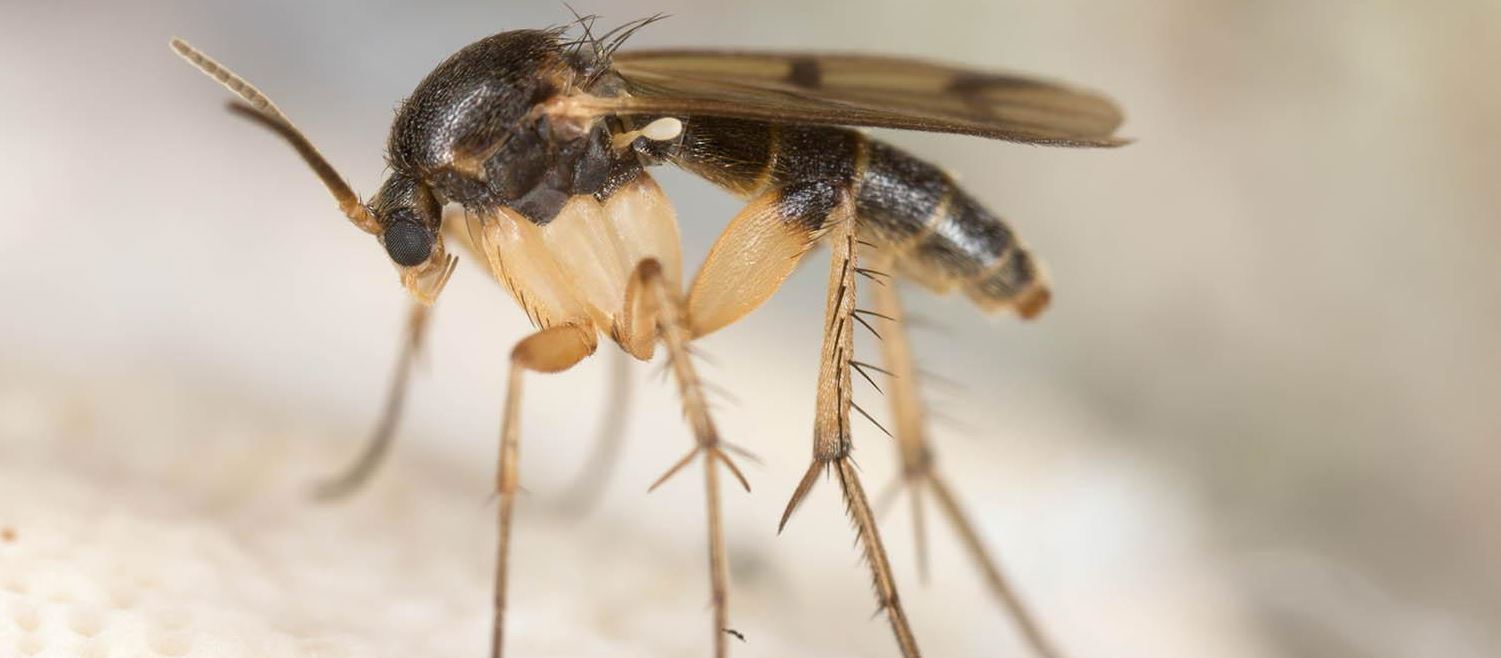Natural Gnat Repellents
Gnats are annoying, destructive or painful, buzzing around your head, eating your plants or biting your skin.
Keeping these critters at bay isn’t difficult — you can make budget-friendly and powerful gnat repellents with a few readily available household ingredients. Let’s reveal these insane and effective home remedies.
The top natural gnat repellents:
- Peppermint oil
- Dryer sheets
- Eucalyptus oil
- Mexican tea
Why Use Natural Gnat Repellents?
Go to any store, and you’ll see a plethora of branded repellent products lining the shelves. Make no mistake, these are, in the main, highly productive at keeping the bugs at bay.
The issue arises in that these sprays and creams can be hard on the wallet and contain some nasty chemicals.
One of the most common ingredients is DEET — N-diethyl-meta-toluamide — developed by the U.S. Army for use in jungle warfare. While excellent at keeping the gnats away, it can have some unfortunate side effects, including:
- Seizures
- Gulf War syndrome
- Cancer
- Tumors
Quite honestly, these cases are rare — especially if you didn’t fight in the Gulf — but it’s still a cause for concern. If you have children younger than 12 years, the experts recommend that you should only apply DEET to their skin at a concentration of no more than 10 percent. Most commercially available repellents contain more.
The Best Natural Gnat Repellents
To avoid the possible dangers of dangerous synthetic chemicals in your bug spray, here are our top natural gnat repellents.
Essential Oils
Using the correct essential oils will deter gnats, just be careful in their preparation. As you’ll be applying them directly to your skin, you need to dilute them with a carrier oil first to prevent irritation.
In the following treatments:
- Use 12 drops of the essential oil per each fluid ounce — 28 milliliters — of carrier oil
- Then add the mixture to a small spray bottle for easy application
Peppermint Oil
Many off-the-shelf gnat repellents will include this ingredient, in addition to their active chemical.
Pleasant-smelling, research shows that peppermint deters many flying insects, including mosquitoes and gnats.
Eucalyptus Oil
In 2011, experts discovered that eucalyptus oil is 96.8 percent effective at repelling unwanted critters.
You can mix with a carrier oil for spraying, or it works equally efficiently in cream form. To make your own, mix five drops of the oil with half a cup of shea butter.
Alternatively, add it to diffusers to treat an entire room.
Tea Tree Oil
If just deterring gnats isn’t sufficient and you want to kill them too, use tea tree oil — Melaleuca alternifolia. Scientists explain that this extract has insecticidal properties, killing gnats within 12 hours of exposure.
Don’t, however, apply directly to plant-soil if that’s the location of a gnat infestation. Instead, mix with a little soapy water and place next to affected pots.
Neem Oil
This oil, an extract from the Indian neem tree, contains the active compound azadirachtin. For use as a gnat repellent, mix with a carrier oil as we described earlier.
This compound is also highly effective in destroying the larvae of the fungus gnat — the creatures which kill plants. Add it to soil — it won’t damage your precious flora — and wait for the munching monsters to curl up and die.
Dryer Sheets
They’re not just great for your laundry. Many dryer sheets contain the aromas from the essential oils we previously mentioned. Place them in the pockets of your clothes, or hang in closets, to repel gnats.
If you wish to discourage these flying pests from larger areas, peg to air conditioning units or fans.
Mexican Tea — Chenopodium ambrosioides
Also known as Jesuit’s tea and wormseed, this herbal tea is a potent insect repellent.
Research from the University of Kansas illustrates that in greenhouses, Mexican tea will deter gnats from damaging plants — and you can use it on your skin.
- Make up a batch of tea with boiling water
- Once cool, add some pure alcohol — or vodka if you have no medical-grade available — in the ratio of 1 teaspoon per cup to assist with evaporation
- Spread liberally on the exposed parts of your body to keep away the bugs
If protecting your plants, omit the alcohol and place the pure tea around the affected flora.
Geranium Plants
You can use a geranium essential oil on your skin, diluted as mentioned earlier. However, you can utilize these attractive flowering plants as repellents throughout your home, greenhouse and garden.
While nature abhors a vacuum, gnats abhor geraniums. Studies from Soonchunhyang University explain that these perennials deter insects, including gnats.
There is, unfortunately, an exception to the rule.
The fungus gnat loves geraniums. While these critters won’t you, they can make your houseplants full of flying bugs and damage young seedlings.
Conclusion
Using these natural gnat repellents will keep your home and garden gnat free without using harsh chemicals. The different treatments may affect certain families of gnats more than others, so experiment to see which works best for you.
Not only will you be free from the annoyance and bites of these naughty nibblers, but you and your home will smell awesome, too.

